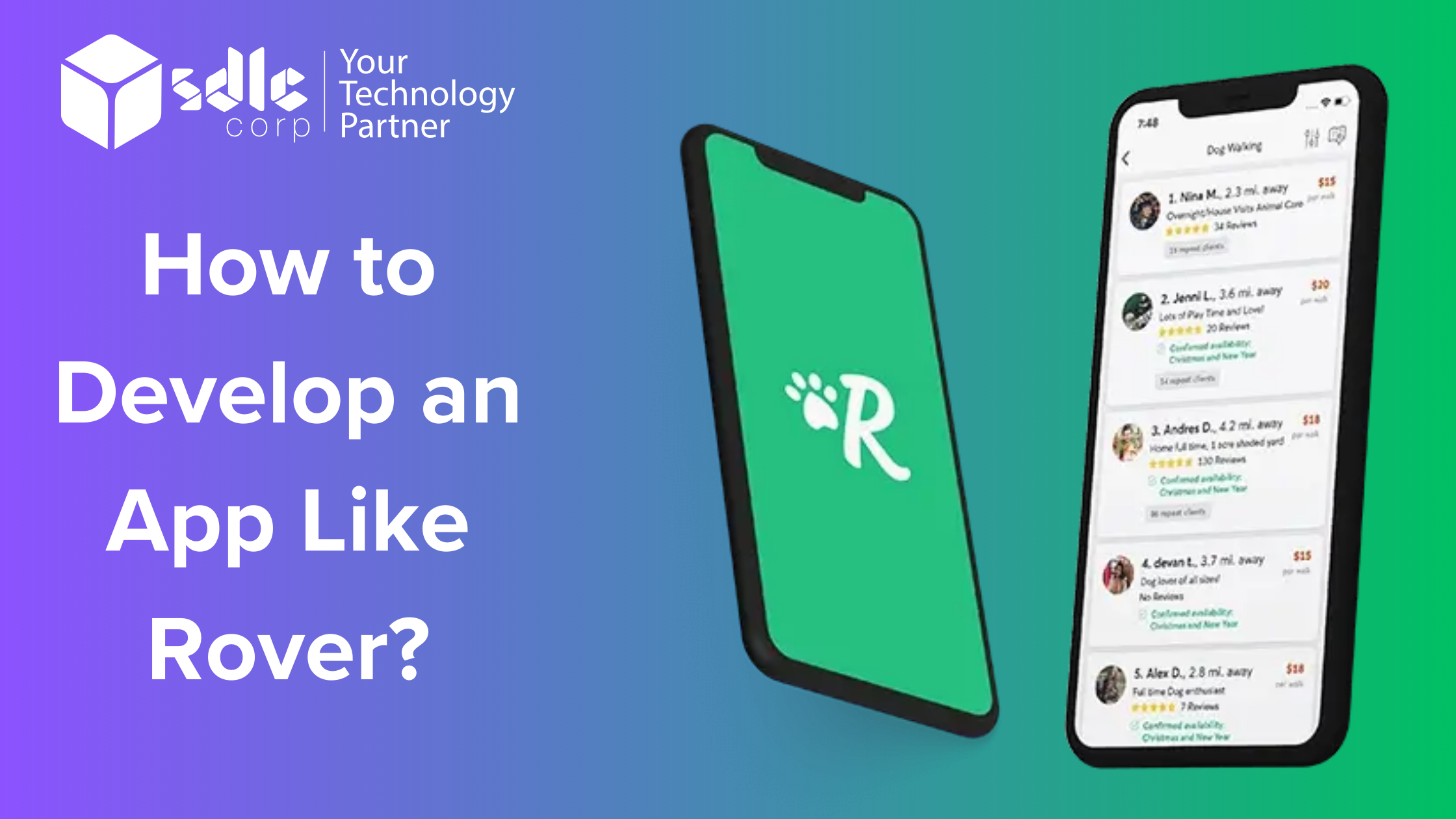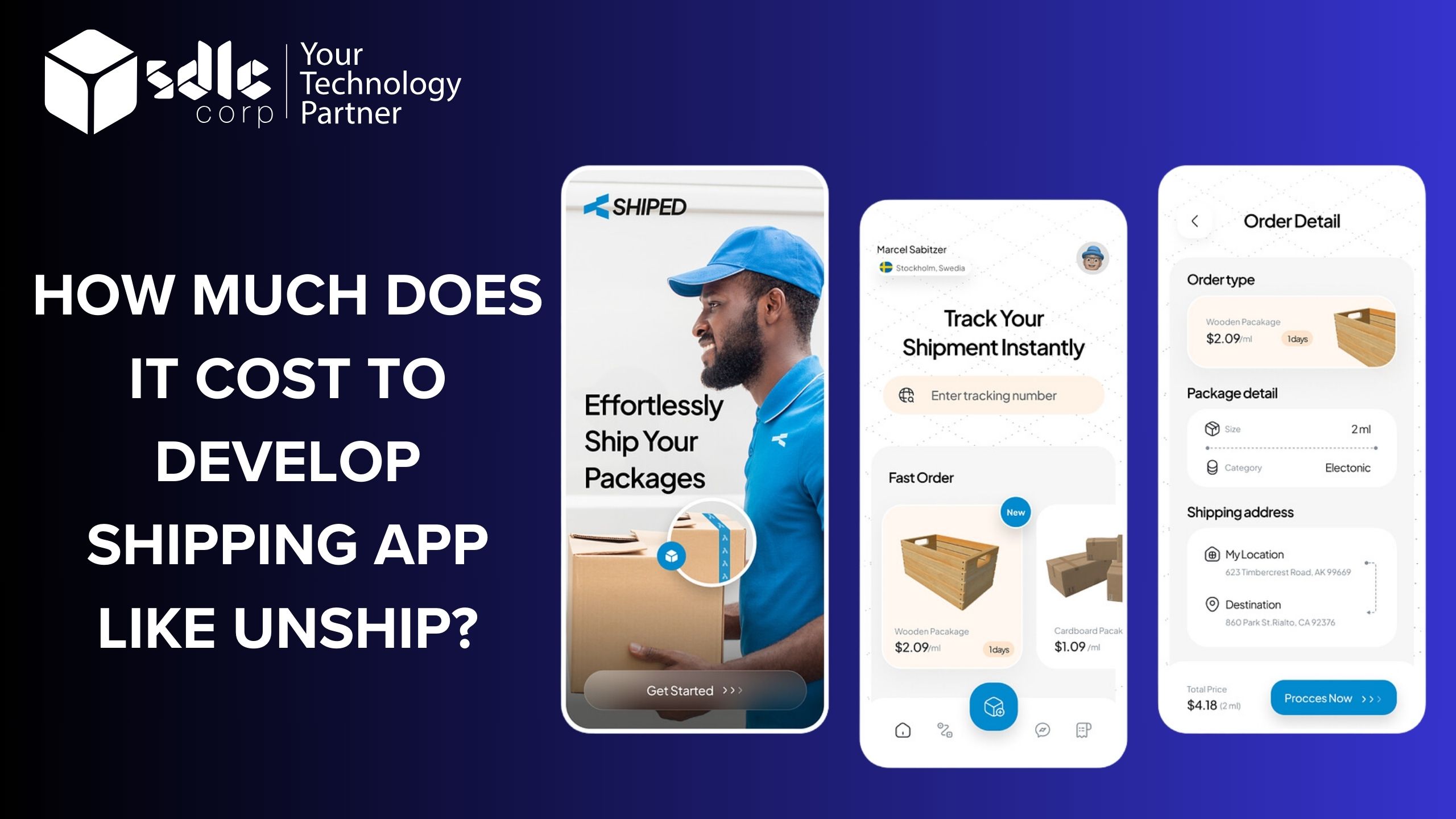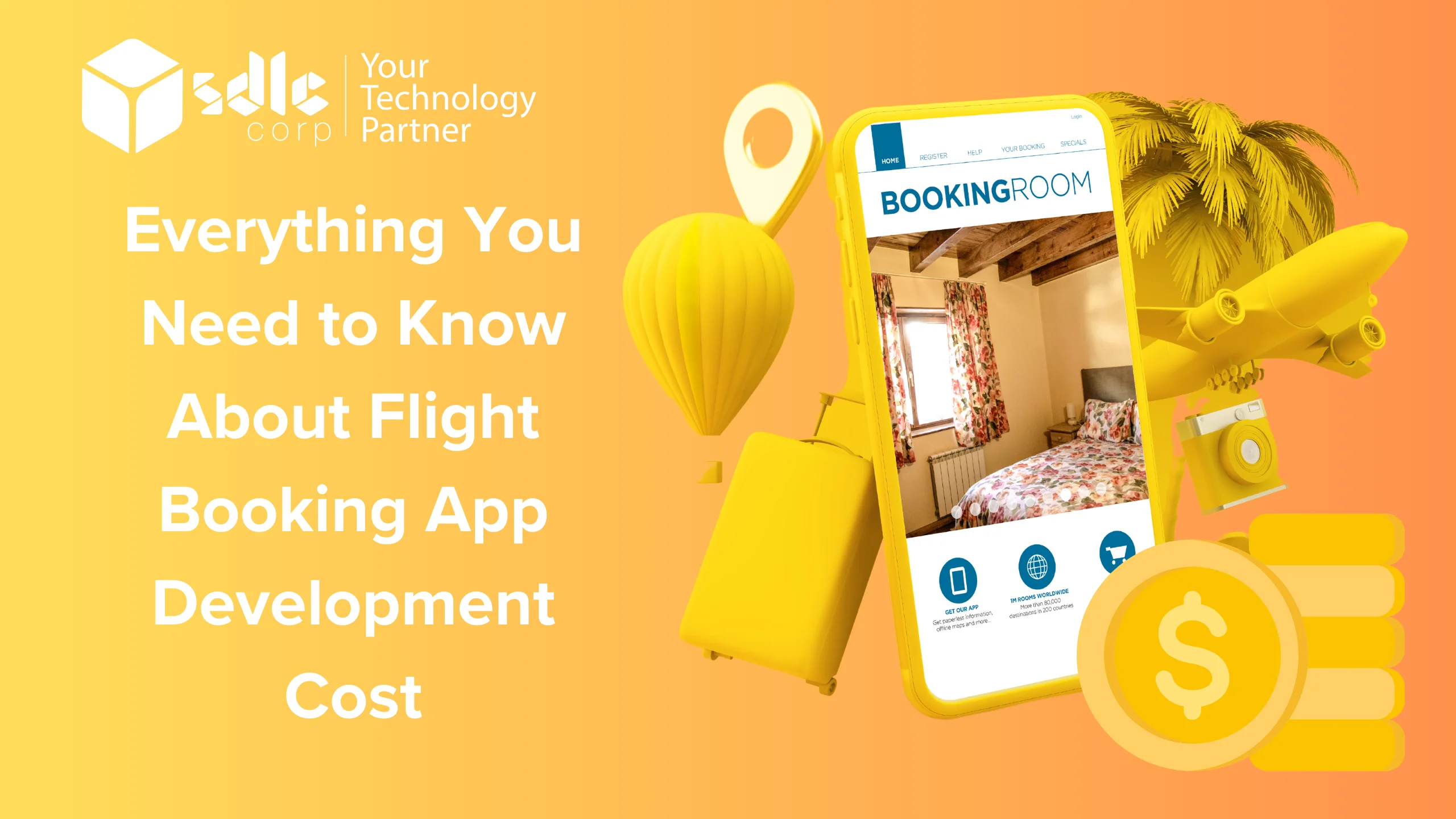Everything You Need to Know About Flight Booking App Development Cost
In today’s digital age, flight booking app development has become a requirement for travel firms and airlines. Mobile applications are now used to book a considerable share of air travel, and this trend is projected to continue. The process of booking flights has gotten more pleasant, convenient, and user-friendly as technology has advanced.
If you’re thinking about creating an airline booking app, you should be aware of the fees involved. The cost of establishing a flight booking app depends on various aspects, including the application’s complexity, the platform you select, the features and functionalities you wish to incorporate, and the development team you engage.
In this blog, we’ll discuss every aspect you are required to know about flight booking app development costs, from the elements that influence total expenses to the estimated expenditures you can expect to incur during the development process. You will have a better knowledge of the costs involved by the conclusion of this blog and will be better equipped to budget for your flight booking app development project.
Understanding the Cost of Building a Personalized Flight Reservation Application
The cost to develop a flight booking app can range from $40,000 to $200,000, depending on a number of criteria. However, the overall complexity of the app is the most important element influencing development costs.
For example, the higher the overall cost, the more complicated the software and the more integrated features it has. A flight booking app with a basic user interface and fewer functionality, on the other hand, will be less expensive. We provide a valid formula for estimating the cost of developing an airline booking app at various levels of complexity. We attempt to provide you with a sure-shot formula because each firm has unique requirements and the development process varies between agencies.
Our method calculates the total number of development hours needed to finish the app’s wireframing, design, coding, quality assurance, maintenance, and other associated duties. The hourly pricing for development may vary based on the app development company you pick.
We can estimate the entire cost of developing a flight booking app for various levels of complexity by breaking it down into development hours and hourly rates.
Discover flight booking app costs now!

Factors Affecting the Cost of Flight Booking App Development
Creating a flight booking app may be a complex process, with a number of elements influencing the ultimate cost of development. Here are some important variables to consider:
App Features
The features and functionality you wish to include in your flight booking app can have a major impact on development costs. For example, elements such as flight search, booking, and payment processing are required, however others such as seat selection, meal choices, and luggage selection can increase development costs.
User Interface (Ui)/User Experience (Ux)
A seamless user experience and a user-friendly interface can boost user engagement and overall app success. A well-designed UI/UX requires significant effort from the development team and might raise development costs.
Integration With Third-party APIs
To acquire data on flight schedules, costs, availability, and so on, a flight booking software frequently requires integration with third-party APIs. The more APIs you integrate, the more complex the software becomes and the higher the development cost.
Platform
The platform on which you design your app has a big impact on the overall cost of development. Developing for the iOS and Android platforms necessitates distinct development techniques and tools, which might impact overall costs.
Technology Stack
Technology stack you choose for your app can affect the cost of development. Selecting advanced technologies such as artificial intelligence and machine learning may increase the cost.
Development Team
The size and experience of the development team you choose to collaborate with will also affect the cost of development. Experienced developers may demand a greater fee, but they can offer a higher-quality product in less time.
Testing and Maintenance
Testing is an important element of app development since it ensures that the app operates as it should. The cost of testing and maintenance should be included in the entire development cost.
Localization
If you intend to launch your software in multiple nations or regions, you should think about localization. This entails translating the app into many languages and customising it for various cultures. Localization can increase development costs based on the number of languages and cultures supported.
(Read more about Understanding the Budget for Mobile App Development by App Type)
Integration of Various Elements
A flight booking app is a platform that permits users to search, compare, and book flights from different airlines. To give customers with a flawless and hassle-free experience, it is critical to integrate various elements into a flight booking app. Some of the functions that should be included in an airline booking app are as follows
Flight Search and Comparison
The ability to search and compare flights from several airlines is the most important function of a travel booking software. Users should be able to search for flights based on their preferred dates, destination and arrival cities, and passenger count. The software should also compare costs, schedules, and airlines so that users can select the best option based on their budget and interests.
Explore our other insights!

How Can You Find Investors For Your Mobile App Startups?
How Can You Find Investors For Your Mobile App Startup? Starting a mobile app startup is an exciting

How to Develop an App Like Rover?
How to Develop an App Like Rover? Learn how to develop, build, and create an app like Rover,

HOW MUCH DOES IT COST TO DEVELOP SHIPPING APP LIKE UNSHIP?
How Much Does It Cost To Develop Shipping App Like Unship? To develop a App like Unship, you’ll
Booking and Payment
After locating the desired flight, the user should be able to book it directly from the app. The app should include a simple and user-friendly booking interface, as well as support for numerous payment methods such as credit cards, debit cards, and e-wallets. Users should also be able to access their booking details and itinerary on the app.
Flight Status and Notifications
Users should be able to track their flights and receive real-time updates on flight status, delays, cancellations, and gate changes via the app. This function can be quite useful in assisting travellers in planning their journey and avoiding any difficulty.
Loyalty Programs
Many airlines have loyalty programmes that reward frequent travellers with advantages such as free flights, upgrades, and lounge access. The app should enable users to access and manage their loyalty program accounts, as well as learn how to earn and redeem rewards.
Travel Planning and Assistance
In addition to ticket bookings, a flight booking app can offer users other travel planning and assistance options such as hotel reservations, auto rentals, and travel insurance. All of these services should be accessible straight from the app, making it a one-stop shop for all of their travel needs.
Customer Support
Last but not least, the app should include a customer support option that allows customers to contact the airline’s customer service team if they have any problems or questions. Customer service should be available via email, phone, and live chat via the app.
Revenue Models
Commission-based Approach
This is the most popular income model utilised by flight booking apps. The app earns a commission on each flight ticket purchased through the app. The commission ratio varies by airline and can range from 2% to 10% of the ticket price. This strategy has the potential to be tremendously profitable because the app incurs no upfront costs and generates income from each booking made through the platform.
Advertising Model
Flight booking apps can also generate cash through advertising. The software can deliver customised adverts to users based on their search history and interests. The advertisements can be for flights, hotels, vehicle rental services, or any other travel-related product. The app can charge an amount based on the number of impressions or clicks their adverts receive.
Subscription Model
In this approach, the app charges users a monthly or yearly price to access premium features. These benefits may include unique pricing, speedier booking times, or access to special offers. The subscription cost might vary based on the degree of access granted and can be a substantial source of revenue for the app.
Affiliate Marketing Model
Flight booking apps can generate revenue by partnering with airlines, hotels, and other travel-related businesses and promoting their products on the app. The app can receive a percentage on any sales made through its referral connections. This business necessitates a robust network of partners and, if done effectively, can be extremely profitable.
Markup Model
In this approach, the app adds a markup to the ticket price and generates money from the difference between the ticket price and the markup. This strategy is dangerous since users may compare costs with other platforms, and the app may lose clients if the markup is too large. However, if the app can give additional value to customers, such as speedier booking times or exclusive bargains, the markup model can be profitable.

Loyalty Program Model
Flight booking apps can also generate revenue by establishing a loyalty programme. The app can award users with points or cashback for each booking made through the site. Users can use their awards to get discounts on future bookings, exclusive promotions, or other travel-related products. This technique can help the app create a loyal customer base and generate income from recurring bookings.
(How Much It Cost to Develop a SaaS Application on AWS?Read more about How to Develop a Meesho-like Social Commerce Marketplace App?)
Examples of Different Flight Booking Apps
There are various flight booking apps on the market that cater to the demands of travellers worldwide. This section will look at some of the most popular flight booking applications and their distinguishing features.
Expedia
Expedia is a well-known airline booking app that provides various services, such as flight booking, hotel booking, vehicle rental, and holiday packages. Users can use the app to find flights based on their desired departure and arrival dates, airports, and carriers. It also has a flexible date search option, allowing users to find the cheapest flights available across a variety of dates.
Expedia’s Rewards programme is a standout feature, with users earning points for booking flights, hotels, and rental vehicles. These points can then be exchanged for future booking discounts.
Kayak
Another popular airline booking app is Kayak, which permits users to search for flights, hotels, and auto rentals. It has an extensive search engine that compares costs from many airlines and travel agents to locate the cheapest bargains.
Kayak’s Price Forecast function, which predicts whether flight rates will rise or fall in the future, is one of its distinguishing features. This enables consumers to make informed judgements about when to book flights in order to get the greatest deals.
Skyscanner
Skyscanner is a famous travel booking software that provides a thorough search engine to help you find the cheapest ticket rates. Applicators can search for flights based on their desired dates, airports, and airlines, as well as a flexible date search option.
Skyscanner’s “Everywhere” search tool, which allows users to find the cheapest flights to any location, is a standout feature. This is an excellent choice for budget-conscious travellers who are willing to be flexible with their trip arrangements.
Hopper
Hopper is a travel booking service that utilises artificial intelligence to estimate ticket pricing and propose when users should book their flights. It also includes a flexible date search feature, allowing users to find the cheapest flights available across a variety of dates.
Hopper’s “Watch This Trip” function allows customers to watch the price of a specific flight and receive updates when the price reduces. This allows users to save money by booking their flights at the most advantageous period.
Google Flights
Google Flights is a travel booking tool that finds the greatest airline deals by utilising Google’s strong search engine. Applicators can search for flights based on their desired dates, airports, and airlines, as well as a flexible date search option.
Google Flights has a unique “Explore” function that allows users to search for flights to a specific place and compare prices for other dates. This is an excellent choice for budget-conscious travellers who are willing to be flexible with their trip arrangements.

Conclusion
Finally, creating a flight booking app might be a lucrative economic enterprise. The cost of producing such an app might vary depending on a number of criteria, including features, complexity, and platform. To ensure consumer happiness and retention, however, it is critical to invest in a high-quality app with a user-friendly layout.
FAQs
1. How Much Does It Cost to Develop a Flight Booking App?
The cost of establishing a flight booking app can range from $10,000 and $150,000, depending on criteria such as the app’s features, design, platform, and location of the development team.
2. What Features Should a Flight Booking App Have?
Flight search, booking, payment integration, notifications, and customer assistance are all vital aspects of a flight booking app. Seat selection, flight tracking, and reward programmes can all improve the user experience.
3. What is the Typical Development Time for a Flight Booking App?
Depending on the complexity, difficulty, and functionality of the app, the development period for an airline booking app might range from 3 months to 12 months. The knowledge and expertise of the development team are also important factors in deciding the app’s development duration.
4. Which Platform is Best for Flight Booking App Development?
Both the iOS and Android platforms offer advantages and downsides when it comes to flight booking app creation. Although iOS has a better revenue potential, Android has a larger market share. The platform should be selected depending on the target audience and business requirements.
5. How Important is User Experience in a Flight Booking App?
The user experience is critical to the success of an airline booking app. A user-friendly layout, simple navigation, and speedy search results can all improve the user experience and boost customer satisfaction and retention. A bad user experience might result in unfavourable reviews and lost revenue.















